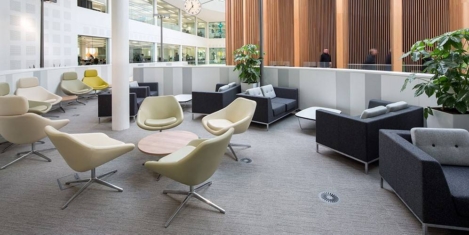February 6, 2017
No job is entirely safe as era of robots at work dawns 0
Two new reports have highlighted the ways in which a new generation of robots could transform the workforce, opening up opportunities while also threatening existing jobs. A study from Oxford Martin School claims that 35 percent of jobs in the UK are at risk of automation, and not necessarily those of the low skilled and unskilled. The study analyses which jobs commanding a salary of more than £40,000 are most at threat. It found that top of the “at risk” ranking are insurance underwriters, with a rating of 98.9 percent, followed by loan officers at 98.4 percent, motor insurance assessors (98.3 percent) and credit analysts (97.9 percent). A second report from think tank Reform suggests that robots should be proactively brought in to the workplace to replace 90 per cent of Whitehall’s 137,000 administrative staff with “artificially intelligent chatbots” by 2030, saving £2.6 billion a year.








































